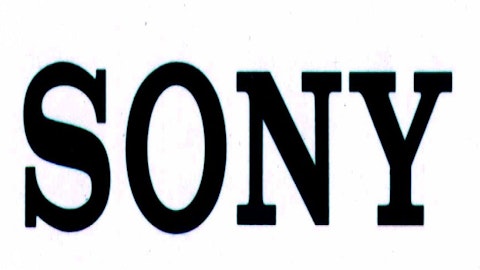Unfortunately for GameStop, there’s more to it than that. The Wii U has sold terribly in the six months that it has been on sale, and though the console might bounce back, if current trends continue, there won’t be many used Wii U games for GameStop to resell.
Cloud gaming is the future
But forget about the notion of selling used game discs — GameStop’s threatened by a much bigger trend.
Earlier this month, Adobe Systems Incorporated (NASDAQ:ADBE) announced that it would be radically reforming the way it offers its Creative software. Instead of selling Creative Suite for a one-time fee, Adobe would only offer its products through the cloud — users would be forced to pay a monthly fee of $50 to use the software.
This model seems destined to make its way to video game consoles. Alongside the unveiling of the Xbox One, Microsoft Corporation (NASDAQ:MSFT) announced that it would be significantly bolstering the number of cloud servers it has dedicated to gaming.
Microsoft’s cloud solution, Azure, allows developers to create software that remains in the cloud, stored on Microsoft’s servers. Now, the company is bringing this to gaming, allowing developers to store their games on Microsoft Corporation (NASDAQ:MSFT)’s own servers.
Right now, these cloud solutions are optional — developers will be able to utilize them to varying degrees. But it isn’t hard to imagine that one day, games will be played entirely in the cloud.
For its part, Sony is going in the same direction. The Japanese electronics giant acquired Gaikai — a video game streaming company — in 2012 for nearly $400 million. Some of Gaikai’s technology is built into the PlayStation 4.
For example, although the PlayStation 4 is not directly backwards compatible, gamers can stream PlayStation 3 games over the Internet to their PlayStation 4 systems. At the same time, Sony will offer all PlayStation 4 games as digital downloads, and it hopes, will one day be able to offer streaming game subscriptions similar to Netflix, Inc. (NASDAQ:NFLX).
In short, the notion of a game as a physical disc is rapidly coming to an end. Although it won’t happen overnight, video games are increasingly existing only in digital form — either downloaded to a console or played on a distant server.
Why would anyone hold GameStop shares?
The long-term case for GameStop seems tremendously dire. The used games market won’t vanish overnight, but it’s hard to imagine, given the current trends in technology, that a healthy used games market will still exist four, five, six years from now.
If GameStop can’t adapt, it likely won’t survive.
The article Microsoft Just Killed the Market for Used Video Games originally appeared on Fool.com and is written by Salvatore “Sam” Mattera.
Salvatore “Sam” is a member of The Motley Fool Blog Network — entries represent the personal opinion of the blogger and are not formally edited.
Copyright © 1995 – 2013 The Motley Fool, LLC. All rights reserved. The Motley Fool has a disclosure policy.


